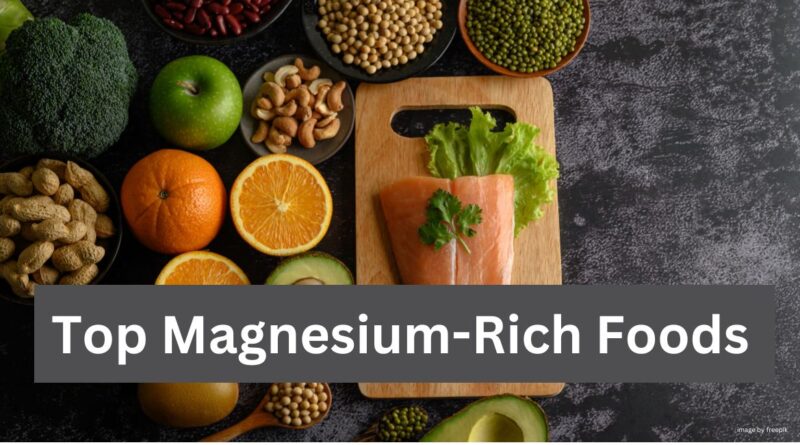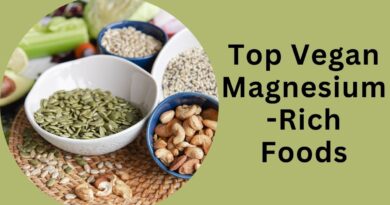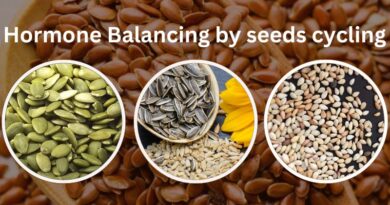Transform Your Health with the Top Magnesium-Rich Foods of All Time!
Importance of Magnesium: Magnesium is an essential mineral that is necessary for many body processes, such as muscle function, nerve function, bone health, heart health, and energy production. Though we are aware of its importance still we don’t include enough magnesium in our diet. We need to include Top magnesium-rich foods in our meals to take advantage of this important mineral. A balanced diet is the key to a healthy mind and body.
General recommended Magnesium Levels:
The daily recommended allowance of magnesium is dependent on factors such as age, sex, and health conditions. Certain medical conditions or medications affect magnesium absorption and can increase the body’s need for magnesium. It’s highly recommended to consult a doctor or registered dietitian to determine your specific magnesium needs.
Magnesium levels General recommendation
- Adult males: 400-420 milligrams (mg) per day
- Adult females: 310-320 mg per day
- Pregnant females: 350-360 mg per day
- Breastfeeding females: 310-320 mg per day
Read Also| Top 10 Zinc-Rich Foods: Boost Immunity and Vitality Naturally
Top Magnesium-Rich Foods:
We should maintain healthy diets and include the below best food that are high in Magnesium items in our diet to maintain healthy Magnesium levels.
- Spinach: Spinach is nutrition dense magnesium rich leafy green vegetable. You can incorporate spinach into salads, smoothies, or sautéed dishes to boost your magnesium intake.
- Fenugreek Leaves: Fenugreek leaves are another green leafy vegetable that is high in magnesium. You can include them in wraps or a part of sautéed vegetables.
- Bajra (Pearl Millet): Bajra is a popular gluten-free grain in India and is rich in magnesium. It is commonly used to make flatbreads, as rice and lentil dish, or porridge.
- Black Gram (Urad Dal): Black gram is a lentil commonly used in variety of Indian dishes. It is rich in magnesium and is used to make dishes like dal makhani, vada and idli/dosa batter.
- Chickpeas (Chana): Chickpeas are another excellent source of magnesium and are used to make dishes like chana masala, hummus, and falafel.
- Pumpkin Seeds: Pumpkin seeds are high in magnesium and can be consumed as a snack or added to dishes like salads and desserts.
- Sunflower Seeds: Sunflower seeds are another variety of seeds which provide magnesium. You can eat them as a snack or add to various dishes for crunch and flavour.
- Almonds: Almond’s nutrition packed delicious snack that is rich in magnesium. Take almonds as portable snack or add them to your oatmeal or yogurt for an extra boost.
- Avocado: Avocado is a creamy and delicious fruit which is good source of magnesium. Make sandwiches, add in salads or enjoy as a topping for toast to increase your magnesium intake.
- Black Beans: Black beans are super legume rich in magnesium, fiber, and protein. Include black beans into soups, salads, or tacos for a nutrient-packed meal.
- Quinoa: Quinoa is a gluten free nutrient-dense whole grain rich in magnesium. Include quinoa as a base for salads, stir-fries, or as a substitute for rice or pasta.
- Dark Chocolate: Dark chocolate is not only a delicious treat but also a good source of magnesium. Enjoy a square or two of dark chocolate as a healthier alternative to satisfy your sweet cravings while boosting your magnesium intake
Conclusion:
Prioritizing a healthy diet is crucial for maintaining optimal magnesium levels. Incorporating the following items into our daily meals can significantly contribute to our overall well-being. Include salads with topping of seeds and nuts mentioned above, veggies and legumes can be included as soups, toast topping, curries or vegetable juice, grains can be used as substitute for rice or made as flatbread. Plan and prep your meal in advance to include nutrition dense foods. Try to maintain balanced diet for 21 days and feel the difference in energy levels.
Disclaimer: The information provided is for general knowledge and not a substitute for professional medical advice. Individual nutritional needs may vary, and consulting with a healthcare professional for personalized guidance is advisable.




